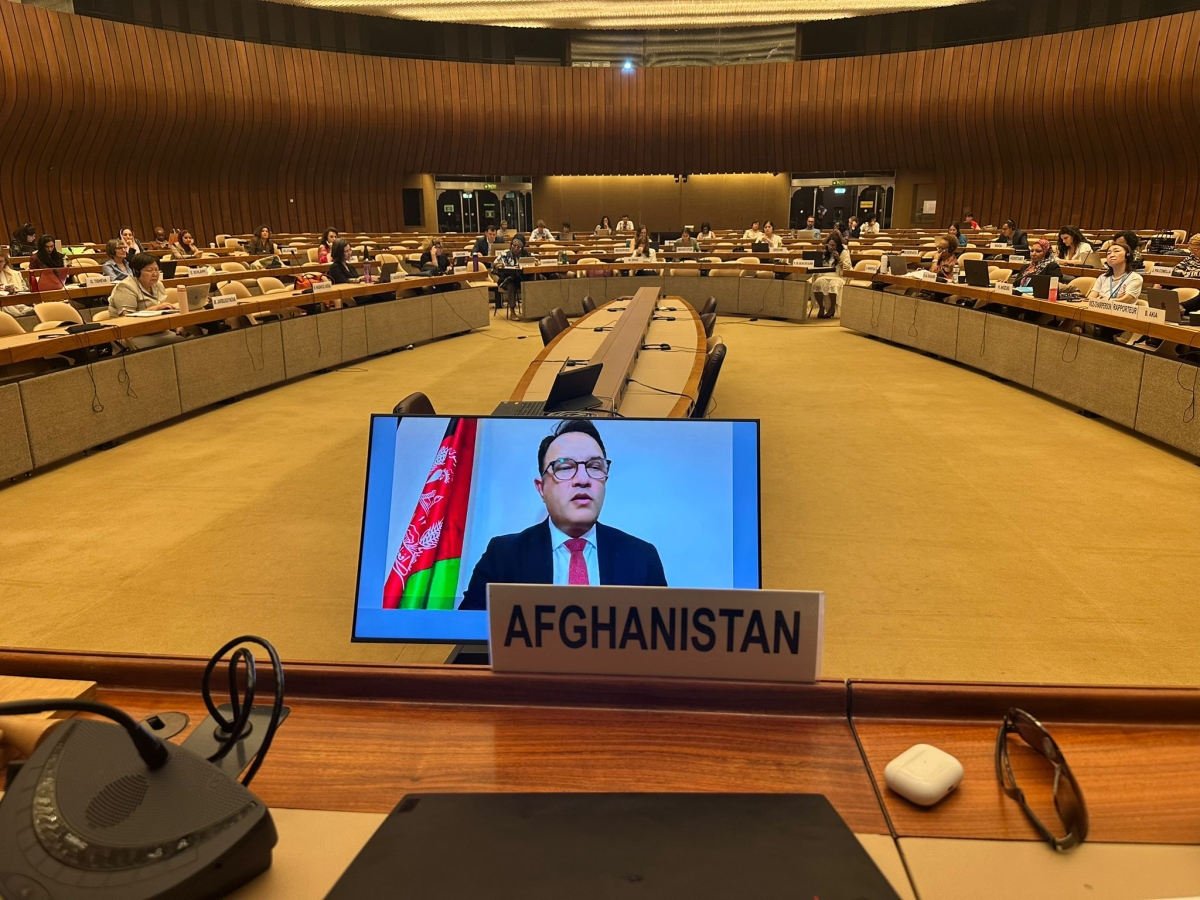CEDAW - Statement on Article 13: Economic and Social Empowerment by Ambassador Waissi

91st Session of the UN Committee on the Elimination of Discrimination against Women
Statement on Article 13: Economic and Social Empowerment
Presented by HE Wahidullah Waissi, Ambassador of I. R. of Afghanistan to Australia
24 June 2025
Madame Chair, Distinguished Members of the Committee,
It is my pleasure to address you today as part of this important dialogue, at a moment of grave urgency when the rights of women and girls in Afghanistan are not only being denied, but systematically dismantled.
Article 13 of the CEDAW recognizes the right of women to participate equally in economic, social, and cultural life. But today, in Afghanistan, these rights are not simply violated they are vanishing.
Since the Taliban’s military takeover, Afghan women have faced an unfolding economic and social catastrophe. Their exclusion from public life is deliberate, far-reaching, and deeply destructive. UN Women and the International Organization for Migration have reported that almost all economic activity by women has either ceased, been driven underground, or is conducted through male intermediaries. In its latest update in May 2025, UN Women found that the female labour force participation rate in Afghanistan has dropped below 6%. This is not just a statistic, it is a silence imposed on half the nation.
Women-led businesses have collapsed. Microcredit schemes, once a backbone of women’s resilience, have disappeared. Freedom of movement has been abolished. Basic banking services are unreachable. IOM’s April 2025 brief describes a cruel reality in which even cash-based aid requires male permission or escort, excluding widows and unmarried women entirely.
This is not merely economic exclusion, it is economic erasure.
Madame Chair,
Behind these figures are stories of human desperation. Women-headed households are confronting impossible choices, some driven to child labour, early and forced marriage, or even the heartbreaking sale of children, as UNAMA’s 2025 field reports have documented. Families are trading household belongings, or their daughters, for survival. These are not isolated cases; they reflect a systematic dismantling of women's agency.
There is no functioning social safety net. Pensions, emergency assistance, and basic welfare have been stripped away. Less than 10% of women-headed households have successfully registered for humanitarian cash transfers, barred by bureaucracy, gender-based restrictions, or both.
Beyond income and employment, the very foundation of women’s economic security, inheritance and property rights, has collapsed.
Women are increasingly barred from inheriting or owning land, homes, or other assets, despite protections under Islamic and national law prior to 2021. This legal and cultural rollback denies women collateral for credit, strips them of intergenerational wealth, and makes them economically invisible. As a result, widows and divorced women are left without shelter, bargaining power, or recourse, deepening poverty and making exploitation—such as forced remarriage, a daily risk.
And beyond economic hardship lies the theft of identity.
Social and cultural life as essential expressions of dignity and belonging are being extinguished. Afghan women are not only banned from participating in public cultural life, but they are also being erased from it.
In their own words:
• “We have no right to participate in cultural or social activities.”
• “Concerts, exhibitions, cinema, and music—all vanished and destroyed.”
• “Books were banned; the names of poets removed from streets and universities.”
UNESCO’s June 2025 report warns of gender erasure through cultural censorship and institutional rewriting of school curricula. Over 40 public libraries and community arts centres have been shut down in just two months.
Many of Afghanistan’s leading women artists, musicians, and athletes have fled into exile. Those who remain live in fear, their instruments burned, their murals covered, their names deleted from public records. This is not only a denial of rights, but also an attempt to erase memory itself.
Madame Chair, Distinguished Committee Members,
This moment calls for more than condemnation. It demands coordinated and principled action. We respectfully urge the Committee to recommend the following to the international community:
1. Ensure equitable distribution of humanitarian aid to reach women and girls, particularly the most vulnerable, without male gatekeepers, and free from ideological interference.
2. Strengthen independent monitoring and evaluation mechanisms to detect and prevent aid diversion.
3. Support targeted economic initiatives that enable women entrepreneurs in conflict-affected settings to rebuild livelihoods, strengthen local resilience, and contribute to inclusive recovery.
4. Enhance transparency in financial flows and improve access for women-headed households through inclusive and verifiable registration mechanisms.
5. Safeguard and support women’s cultural and creative expressions, ensuring safe platforms for their voices and preserving their contributions to Afghanistan’s heritage.
Madame Chair,
Economic empowerment and cultural participation are not luxuries. They are lifelines. They are rights. And they are essential to rebuilding Afghanistan, not just for women, but for the nation’s very future.
Let us not allow the spaces in which women once thrived to become the spaces from which they disappear.
We thank the Committee for its unwavering commitment, and for amplifying the voices of Afghan women who refuse to be silenced.
I thank you.

